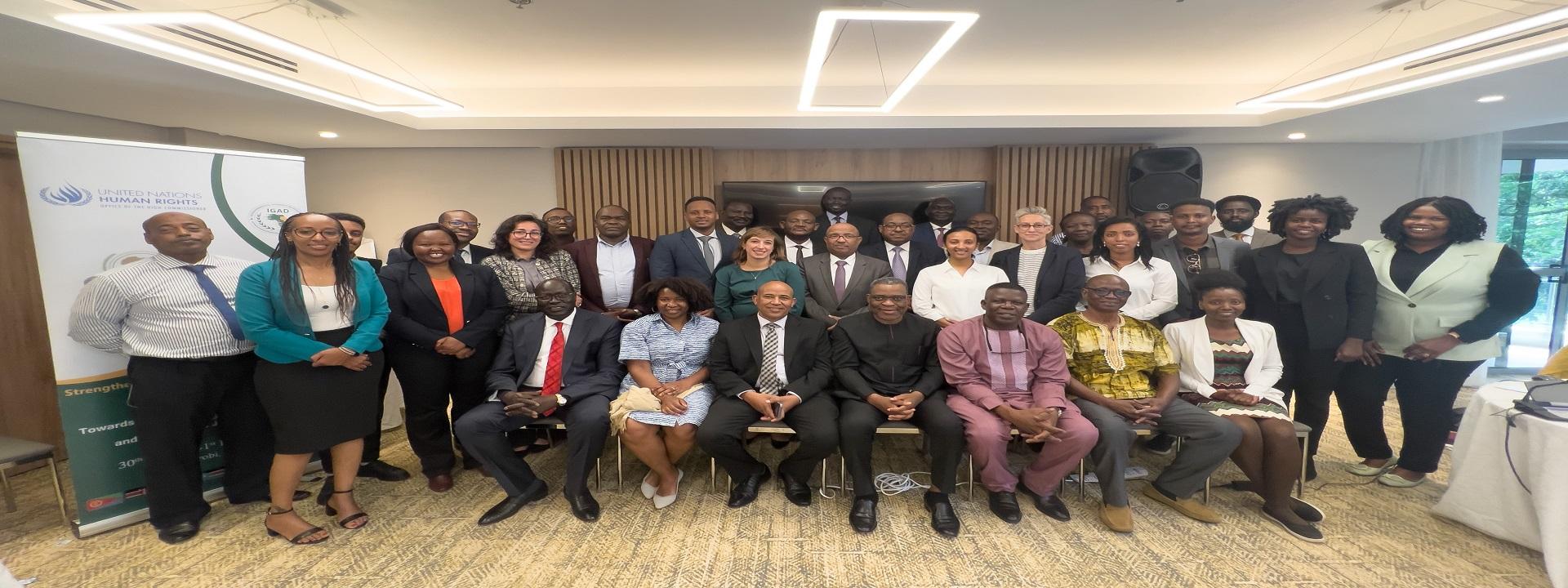February 2, 2024 (Nairobi, Kenya): The Intergovernmental Authority on Development IGAD Political Affairs, Mediation, and Peace-Building in partnership with the Office of the High Commissioner for Human Rights (OHCHR EARO) the African Union Concluded a consultation on Transitional Justice to strengthen the nexus between transitional justice efforts in East Africa and human rights. The consultation also aimed at exploring the role the three bodies can play in ensuring accountability, conflict mediation, resolution, and prevention of further violations. The consultation brought together experts on transitional justice and human rights. The experts were drawn from the IGAD member States as well as experts from IGAD, OHCHR, and AU secretariats. The main objectives included broadening the understanding of the centrality of human rights in regional transitional justice processes, reinforcing the nexus between transitional justice and human rights and exploring the role of regional and international actors, setting the basis for the development of IGAD human rights, and transitional justice framework, that will accompany the AU Transitional Justice Policy to replicate the same in other regions in Africa. The consultation will help complement an evidence-based study that OHCHR is conducting on transitional justice processes in East Africa, highlighting what OHCHR has done, the challenges, the good practices, and the lessons learned.
The director of the Peace and Security Division (PSD) Hon. Siraj Fegessa as he opened the discussion stated that The aim of the IGAD Transitional Justice(TJ) Mechanism is to Concentrate on issues related to transitional justice in the IGAD region and the Horn of Africa. While at it, explore the role IGAD and partners can play in conflict mediation, resolution, and prevention of further violations.
Marcel C.Akpovo OHCHR Regional Director for Africa Recognized the efforts of the partners and experts for the part taken in this activity. He said transitional justice flows through the region and Given the commitment, there is no doubt that IGAD will develop this mechanism.
“When we have peace and have no justice then it is not just. That is how critical justice is in this process” He emphasized.
Marcel Added that it Is a very rampant reality that we face every day and the ones that are coming up still face the same challenges. Hence calling creativity in ways we source for resources within the means of transitional justice. “Be the promoters of justice and champions of transitional justice as a tool to rebuild your country. Make the protocol useful to the people and community. This is a legacy to those coming after us” He said.
The director of Political Affairs, Mediation, and Peace-Building Dr. Aleu Garang highlighted possible steps of developing this IGAD transitional justice mechanism.
Director Garang said having Identified the process of the mechanism will entail consultation within Member States and expert representation. How to design the mandate? Stakeholders approach, Committee of Ambassadors, and Council of Ministers. It will also require Consultations with institutions that involve legal experts, and ministries concerned to help with the design as well as Coordinate with partners on how best to mobilize funds. Take the final draft to the committee of ambassadors and then to the council of ministers for endorsement,
Consulting colleagues and partners regarding the design.
This consultation was organized by Political Affairs, Mediation, and peace-building of the Peace and Security Division (PSD) in partnership with the Office of the High Commissioner for Human Rights (OHCHR EARO), and the African Union (AU).

